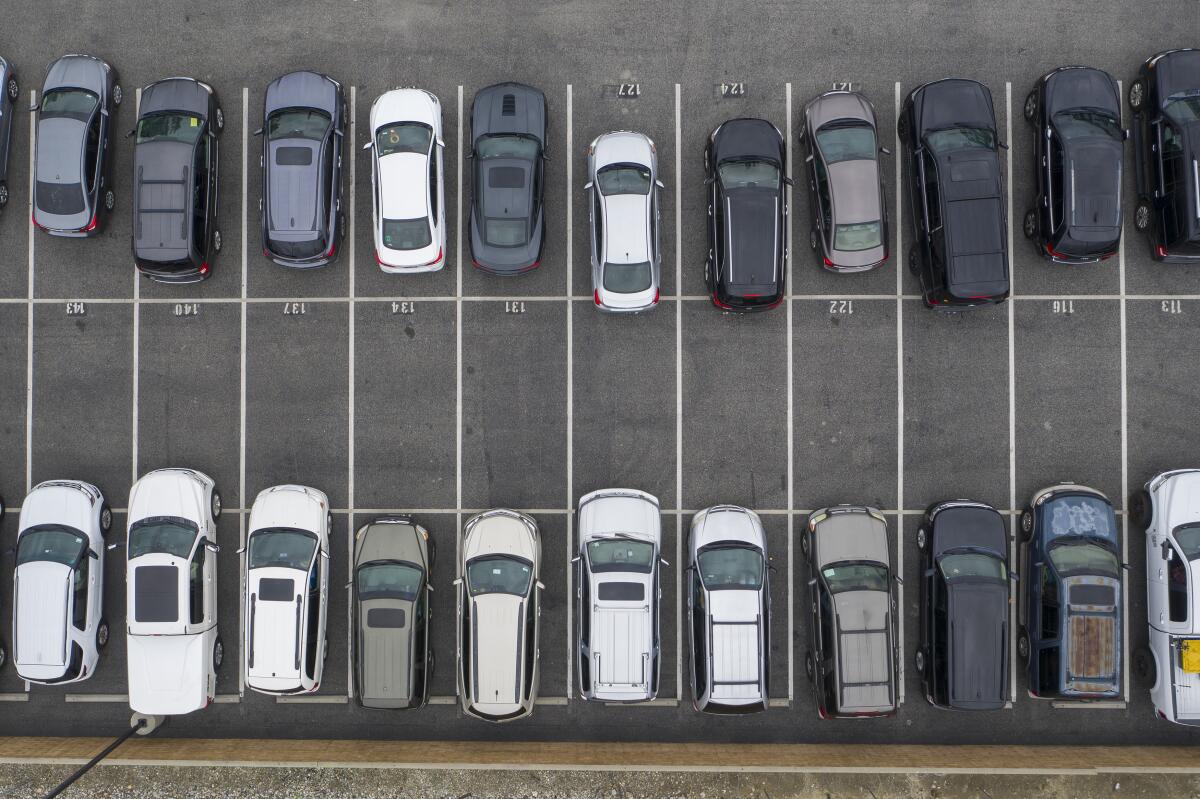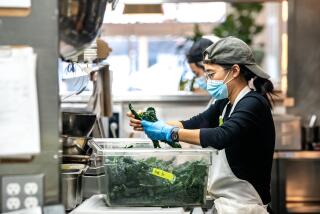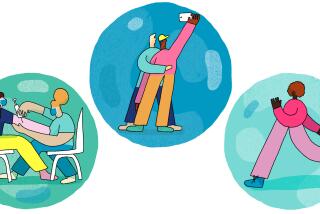For L.A.’s first fully reopened weekend, 12 basic Angeleno skills you may have forgotten

I recently had lunch with a friend I had not seen in person since the pandemic began. It was very exciting. So exciting that I forgot an important fact of L.A. life: If you agree to meet someone who chooses a lunch spot in Brentwood, you need to reconnoiter the parking situation. Does the restaurant have a free lot or valet? Is there street parking in the immediate vicinity, or is the closest non-permit side street half a mile away?
In other words, I forgot that, in Los Angeles, the follow-up question to “What time?” is “Where should I park?” Which meant I spent 20 minutes circling a four-block radius of the restaurant before almost sobbing the question into my phone.
This was quite embarrassing, considering that I have lived here much longer than my friend and pride myself on my hard-won L.A. street skills. (When in doubt, take Beverly, and yellow curb restrictions are not in effect before 7 a.m, after 6 p.m. and on Sundays unless otherwise noted.) But after more than a year of keeping fairly close to my own neighborhood, which, not being on the Westside, offers plentiful parking, I find myself forced to relearn many of them.
Earlier in the pandemic, when traffic was still sparse, it became clear that many of us had forgotten how to drive. Or rather we had forgotten how to drive without the safety bumpers of gridlock, which meant fighting the weird semi-vegetative state many of us inhabited during familiar commutes and actually paying attention to what was happening around us.
Now that traffic is back to almost pre-pandemic levels (whew), we can once again cast away those skills along with the mathematically reasonable expectation that a 20-mile drive on a 60-mile-an-hour freeway will take 30 minutes or so, and return to local reality, in which 20 miles equal one hour. At minimum.
This does not, however, include parking time, which varies from neighborhood to neighborhood and often depends on one’s ability and willingness to pay for parking. Nor does it take into account any last-minute in-car grooming after a quick glance in the rearview mirror reveals that you have left the house looking like you never leave the house except to go grocery shopping because you haven’t in so long.
The city changed a bit while we were socially distancing — among other things, there’s a huge hole where LACMA used to be and a new Frank Gehry-designed Youth Orchestra Los Angeles music center in Inglewood. But we have changed too, and although some of us may now be able to identify 15 types of birds by their song, we have forgotten Very Important Things, like keeping track of the Dodgers’ at-home schedule if any of our plans involve the 110 or the 5.
A few other things you also might keep in mind now that L.A. has reopened and life is returning to near-normal.
- You will need to restock your car. Not just for earthquake preparedness (I can’t be the only one who stripped my handy little kit of its masks early in the pandemic) but also for general life preparedness. You’ll need masks, of course (they are still required in many places), but also — depending on your personal needs — water, snacks, sunglasses, sunscreen, a first-aid kit, reusable grocery bags and at least one blanket. Remember when you were out and about so much it felt like you lived in your car? All that stuff.
- You will need to carry a fully charged portable phone charger. At all times. Because many more businesses have leaned into contactless everything — menus, ordering, payment — which requires a functioning phone, and no, you can’t use my charger because one of my kids has it.
- It’s OK to be really happy when your children are somewhere else. For long periods of time. I know we were all thrilled by the quality time and whatever, but God almighty it’s nice to be able to do something without interruptions occurring at 15-minute intervals.
- You should not talk in movie theaters while the movie is playing. After a year spent bingeing film and television in the privacy of our own homes, it is not surprising that many of us have forgotten that moviegoing is communal but not participatory. Your thoughts about certain plot twists, performances or directorial signatures are no doubt incisive and illuminating, but please save them for post-exit conversations. (Except during horror films, which, in my opinion, always benefit from someone shouting the occasional, “Don’t go in there; are you crazy?” if only to relieve the tension.)
- Likewise, after months of conducting entire conversations with family members from opposite ends of the house, we will all need to reacquaint ourselves with the pre-pandemic meaning of “indoor voice.” If, while at a museum, you want your friend to see the painting or installation you are currently enjoying, you will have to walk over to her, all the way, and make your wishes known in a low voice. Or you could text her, but only if your phones are on vibrate.
- Be kind to people who are doing things for you even if they are getting paid to do it. During the pandemic, there was, justifiably, a lot of love for hospital workers, cashiers, security guards, restaurant staff, delivery people and the many others who risked their health and lives to serve us. Which was great, but it shouldn’t take a pandemic to remind us to treat people as we would like to be treated, and that includes “thank you’s” and tips.
- You will need reservations. Like, everywhere. Space reconfiguration, staffing issues, the above-mentioned move to contactless service and, obviously, millions of people released from their cages, er, homes mean crowds. Great for the local economy and cultural institutions, less great for individual patrons who are not prepared. The good news: After more than a year of having to wait in line just to get into Bath & Body Works, we may be better at waiting in line.
- I realize that L.A. won two sporting titles in 2020 when there was no possibility of traditional celebration and that this was, and is, a big drag, but let’s try to avoid apoplexy when attempting to remind everyone of this.
- Your weight may have changed during the pandemic, but even if it has, not all of your “leave the house” clothes will definitely feel weird. You can choose to re-acclimate yourself, change your body to fit your clothes, or ditch whatever continues to make you physically uncomfortable. It truly is up to you. But please stop using the term “hard pants”; no one’s asking anyone to don a suit of armor.
- Staying home when you want to stay home is not a political statement or a sign of pandemic trauma or a moral failing. You are not civically obligated to go anywhere (except the voting booth), and “Thanks, but I can’t make it” is a complete sentence.
- There will be testiness; try not to be part of it. Sure, you are finally getting to go on vacation/to Disneyland/on a date night/to the theater, and it would be great if events conspired to create a completely perfect “back in the world” experience. But events often have different conspiracies in mind. On top of traffic, parking and the regular vagaries of the human condition, the pandemic is still around and affecting everything in all sorts of ways. And, as the recent and shameful rise in bad behavior on planes indicates, we may not have missed direct contact with our fellow citizens quite as much as we said we did. No doubt there will be studies on the behavioral and psychological effects of a yearlong shutdown, but right now let’s all try to remember that everyone had a pretty bad year, we’re all making up for lost time, and there’s no vaccine, or excuse, for being a jerk.
More to Read
The biggest entertainment stories
Get our big stories about Hollywood, film, television, music, arts, culture and more right in your inbox as soon as they publish.
You may occasionally receive promotional content from the Los Angeles Times.











